In recent years Photoshop has garnered more negative attention than any other platform that is utilized for image manipulation. Photoshop can be used to create unnatural product resulting in unrealistic expectations. As photographers and retouchers, we have the power to control what the media perceives as attractive.
Lately, it seems that many of us have been a little too "free" with the use of Photoshop. We're taking photos of humans and turning them into plastic Barbies and Kens in post. Why have we allowed ourselves to lose control in such an irreparable manner? Let me take a step back to clarify that the goal of this article is NOT to tell you how to edit responsibly or what is the right or wrong way of editing. Photography is the prime example of how each person experiences the world in a unique manner. No two photographers share the same opinions as one and other. The goal of this article is to raise awareness to the possible ills of Photoshop and to create a space for conversation.
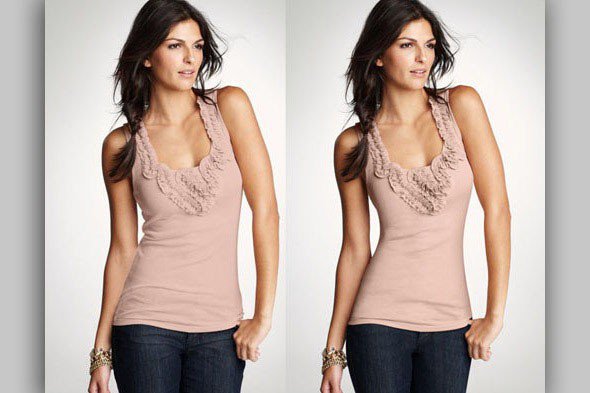
The average individual sees 600 photoshopped images per day. Magazines, advertisements and the like are plastered everywhere we walk. This sort of imagery is scattered on our coffee tables and in our doctors’ waiting rooms. Whether or not we like it, we are subconsciously processing images that have been manipulated everywhere we go. Guys want to be with the girl on the cover of the magazine and girls want to be her.
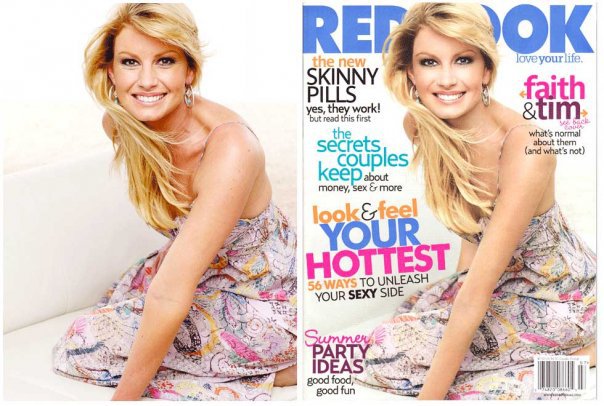
There is no question that photoshopped images in the media are affecting us. Alterations made using photoshop unquestionably contribute to our unrealistic body image expectations. The trouble is, we are struggling to achieve or attain an image that is unrealistic. When we stare into the mirror we are not seeing doctored images of ourselves. Yet, we constantly compare ourselves to the perfected appearances of models and celebrities thinking that the way they look are how they look in actuality when that’s not the case. Too many of us punish ourselves with fierce diets and contempt or animosity for ourselves. Look at your Facebook friends list, one out of every ten of your friends has partaken in a behavior that is detrimental to their mental sanity and physical health like bingeing, over-exercising, skipping meals, etc.

This is not just an issue that women face. Men are also holding themselves to unachievable standards.
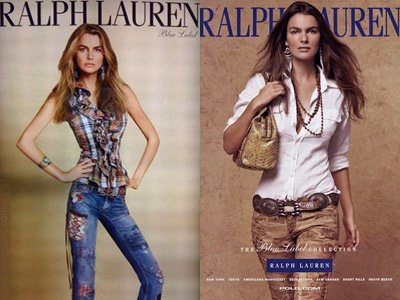
Here’s a disclaimer, I don't want people to walk away from this article saying, "this guy is nuts because he's saying we shouldn't make people look better with post." As a photographer, I understand the importance of postproduction. For those who know my work, I am known to say that I shoot to edit. However, I approach my images with the intention to keep my subject as natural as possible and then I edit away. Again, as photographers we all have different views of what is considered natural and what is considered unnatural. However, I would like to share what my personal limits are.
SKIN:
Blemishes, such as cuts and pimples that aren't normally there will be removed.
Wrinkles are not something I will remove. However, if they are extremely pronounced in the photograph, I will tone them down using this method. Additionally, skin blurring is a tool that I personally loathe. There is beauty in the texture and detail of a person’s skin and by blurring it we remove the natural allure of the skin.
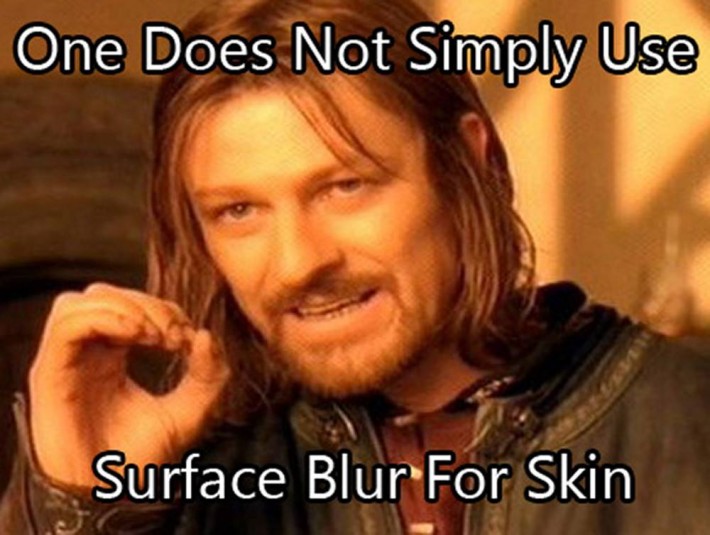
BODY:
The liquify tool, I find it to be extremely addictive and for the most part, I choose to stay far away from it. Shedding pounds off of someone just isn't ethical in MY book. Although I shoot to edit, I always try to place my model in the most flattering angle. However, sometimes because of lighting or the angle of the subject, you will need to make a body part look different. To make things look thinner, I use dodging and burning. For example, by burning the sides of someone’s arm and dodging the center of it, it will create an illusion of a thinner arm without actually making it physically thinner.
Eyes:
I dislike altering the color of a subject’s eyes. When I capture an image of a person, I want it to be reflective of the person. I really believe in the concept that the eyes are the window to the soul and if I change or alter the color in any sort of way, I am not allowing the viewer of the image to truthfully connect with my subject. However, in order to make the eyes look sharper, I will make the catch lights lighter.

The problem is that we as artists don't realize the power we have. Jeff Schewe of Photoshop News said in response to the AMA's stance against image manipulation that "We have wonderful tools to create images, new digital cameras and photographic digital printers and powerful tools such as Photoshop and we are expected to do what -- nothing? I don't think so." However, he's completely missing the point. I agree that we should not be expected to sit on a tool as powerful as Photoshop and do nothing with it. We should use them, but let's not forget what the purpose of postproduction is. It's to reflect our subjects in the most organic way, not create some fictitious character.
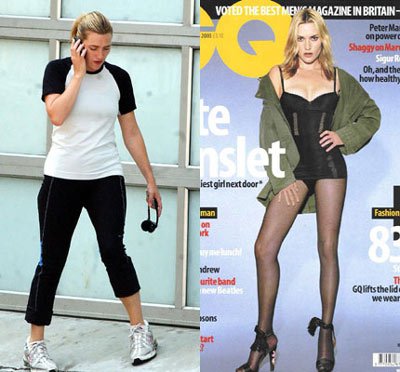
Take a look at Target's latest epic fail. If you're doing something wrong at least do it right!
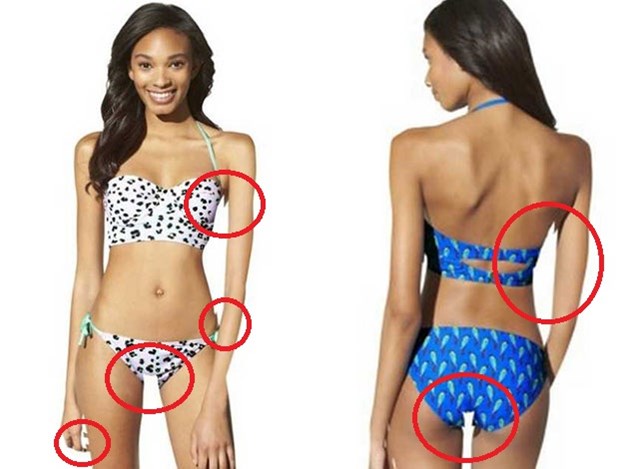
Again, we are the ones who are taking and editing images that promote and perpetuate imagery that is unreal. I chose to write this article so that we can all have a voice in the back of our head reminding us of the influence we have on society. For some, that voice will be louder than others and it will mean different things to different people. Remember there is a way to use a tool like Photoshop responsibly. Use your own discretion. Let’s band together and create a community of photographers who show humankind in the most naturally beautiful way.
[Photos via: Beauty redefined]
Dani Diamond | Facebook | Facebook Page | 500px | Instagram







Amen!
While I completely support your stance I see this post as a flickering candle in front of a tornado. It's possible that if enough "influential" photographers and editors keep making this argument that it might take hold.. but somehow (sadly) I doubt that will happen. I hope I'm wrong.
this article needed more Evangeline Lilly.
We need more Evangeline Lilly in life, in general
I disagree with a lot of the premises here. The point of post production is not to reflect our subjects in the most organic way. I don't think the answer to obesity is to redefine it. If you ask me, we've become soft. One of the reasons kids can't handle criticism is because we deal with them with "kid gloves."
I get paid to create images that make my subjects look good. I try to do most of that in the camera, but there only so much I can do to hide muffin tops, flabby arms and bellies. People lose weight and gain it like pimples. If you can remove things that are temporary like pimples, then why not weight?
While I agree with most of this at face value. The issue on the table (as it always is, and will be) is numbers, sales, image and selling a concept, idea, or client/famous person.
The pudgy kids and young adults can have all the Oprah moments they want to. They can make their Facebook pages complaining about image manipulation and bullying, and the moms feeling the pressure of their little darlings (who's largest challenge during a given day is walking to, and opening a fridge door) whining away about how some photo editor made some unrealistic rendition of their favorite celeb or friend... But until fat and homely starts selling products and goods.. Our perception of what is 'real life' and what is 'what is the real life we want, or prefer to see'... Things will not change.
This is generational now, not a fad. It's become part of 'normal' culture where anyone and everyone of famous... Look at the big butt girl with her own TV show made into something she's not because of a porn movie.. You want change, but no one REALLY wants change.
Putting aside bad retouchers, if a client wants an anorexic-looking model, that's what you have to give them. You're a hired gun, not the art director.
I agree with some ofyour points, but not all. Specially this one:
"but let’s not forget what the purpose of post-production is. It’s to reflect our subjects in the most organic way, not create some fictitious character."
That is not true at all! The purpose of post-production is to enhance the photo. How to enhance it? Depending on the porpoise of your photo. It is not the same a fashion shot, to a family portrait. It is not the same a classical 40ths glamour Hollywood portrait to a modern portrait. IT is not the same a picture of a politician that wants to look accessible to people than a rock start that has to look like a god or goddess. There are different reasons for the photo, and different post-processing for each. The surface blur looks awful on many portraits, but have a place in things like certain edgy fashion shots, artistic photos, and on productions that create magical/fantasy/unreal shots. You are not always looking for reality on a shot. The important thing is that it fits the style of your shot.
We have to distinguish photos that are intended to be used to show reality (a family portrait, an executive portrait) to photos that don't (magical/fantasy productions, edgy fashion shots, glamour photos, any commercial photo where the model is just to show the product, etc). On those cases, I don't mind it at all.
Of course there is good and bad post-processing. On both sides, on realistic portraits and on non-realistic ones.
The use of CG doesn't make Transformers any less of a movie. It is a tool that helps tell the story. That being said the creators and publishers of Transformers do not promote their movie as a documentary. But for some reason photography is held to this higher standard that lumps all images in to one narrow category. I think the photography community as a whole needs to take a step back and trying to vilify those of use who use this tool to tell a story or show an image that would other wise be impossible to capture.
Great insight Dani. Not quite sure I agree with some of the points you're making though. PS/LR...whatever, all have their place in the photography business. It's HOW they're employed and for what reasons that counts. And, it's all relative to what any one particular photographer/artist is attempting to do. I posted an article on my blog regarding the use of these applications and how they have their legitimate place. http://www.thephotowebb.com/244/
I believe the author, like most anti-Photoshop proponents is picking nits. I've yet to hear anyone make a clear and definitive distinction between using tools like Photoshop in post and other tools like posing, lighting, makeup and hair. How is removing blemishes like cuts and pimples any more or less honest than removing a jelly roll that might not have been there before the holiday season? When Gary Burghoff played Radar on M.A.S.H., the directors went out of their way to shoot him so his congenitally deformed hand wasn't shown. How is that any more or less dishonest than 'shopping it out?
And what about the models themselves? American Eagle's "Aerie Real" ad campaign vows to not use Photoshop. Yet their models are sculpted through diet, exercise, and genetics in a way that most of the population will never begin to approach. In what way is this different? I think Sean Mason's comment above (below?) hits the nail on the head. We've become soft. We honestly believe that everyone is equal, when clearly some people are far more intelligent, attractive, strong, or swift than we can ever be. Some people are just really uncomfortable with that fact.
i don´t need somebody to tell me what i should do...
who the hell do you think you are that you give others advices?.
Funny this article is written by someone who relies heavily upon photoshop to improve the images he gets out of camera. Kettle meet pot.